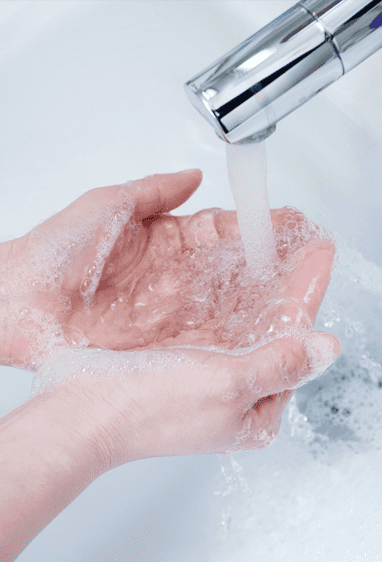Table of Contents
Hand irritant contact dermatitis
Hands that are itchy, sore and inflamed due to contact dermatitis is a common, yet often preventable condition many people suffer from. Caused by touching or immersing hands in substances that can aggravate the skin, contact dermatitis is estimated to affect 9% of the UK population, which is more than any other skin condition.
Aside from physical discomfort, other symptoms range from dryness through to burn-like characteristics with painful and ulcerated skin.
A type of eczema, contact dermatitis is brought on by touching either an irritant or allergen, with irritant contact dermatitis making up around eight in every 10 cases.
Typical irritants include: solvents, detergents, cement, weak acids and alkalis. As such those occupations most at risk from developing dermatitis are those that come into frequent contact with such substances e.g. builders, cleaners, nurses and hairdressers.
Prevention is better than cure
As symptoms might not present themselves until up to 48 hours after contact with an irritant, it can sometimes be difficult to identify the specific cause. If the cause of the dermatitis is not immediately clear, visit your GP who will look at your background, lifestyle and occupation to help determine a trigger.
In the event that this fails they can refer you to a dermatologist or in some cases, particularly if you work with cosmetics, send you for a repeated open application test (ROAT). A ROAT examines how skin reacts when a particular substance is applied to a specific area over the course of a week or so. However, this process is best avoided in the first place. Preventing contact dermatitis is far more effective than trying to cure it, as skin affected by an irritant can become damaged and susceptible to further irritation. Unfortunately, it is not always possible to avoid contact with substances that aggravate the skin on hands. In such cases, protecting the skin needs to be a priority.
Guidance from the Health and Safety Executive for businesses looking to protect their employees from painful skin conditions includes:
- Ensuring workers know how to look after their skin
- Immediately washing any contamination from the skin
- Using moisturising creams
- Providing appropriate protective gloves
Hand care to avoid dermatitis
Even if protective gloves are used, irritants can still get on the skin through nicks and tears as well as entering through the cuff. Also sweat can cause skin irritation if the gloves are worn for long periods of time. Therefore, whether or not you use protective gloves, effective washing and hand care needs to be a priority to prevent hand contact dermatitis.
For more information about our suite of hygiene products, speak to our one of our team.
Reference
http://www.nhs.uk/Conditions/Eczema/contact-dermatitis/Pages/Causes.aspx
